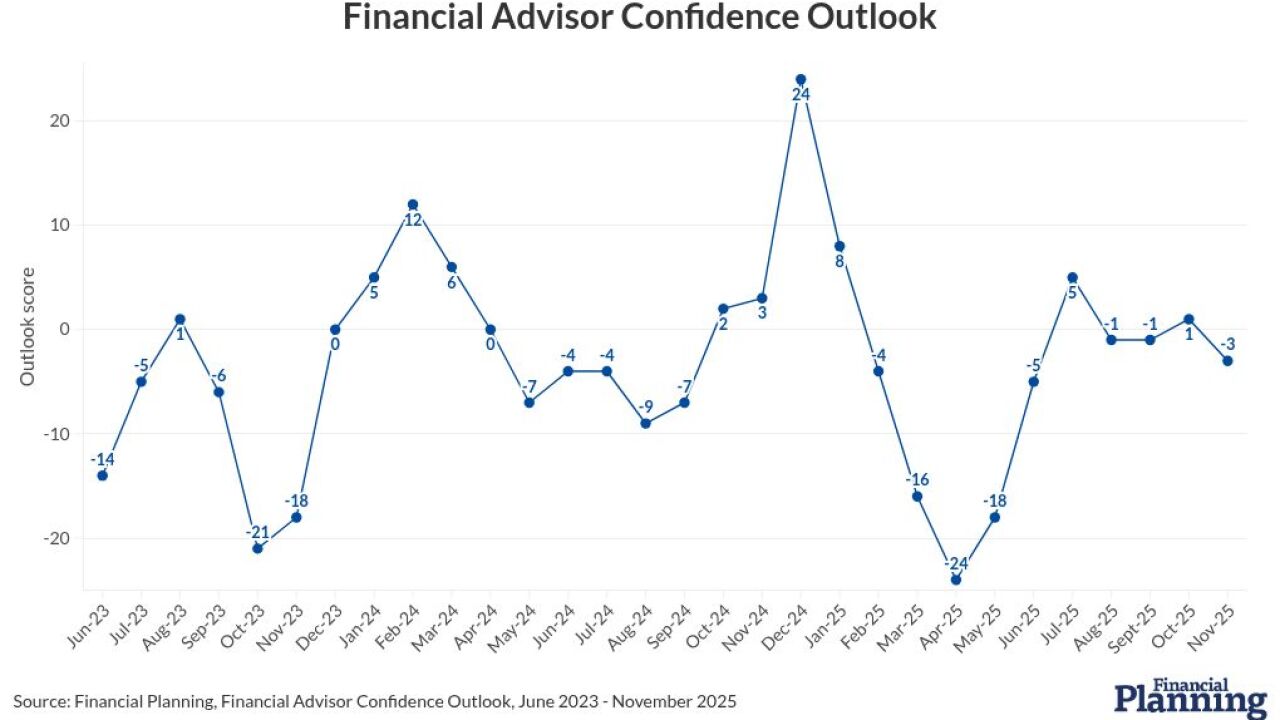(Bloomberg) -- Another half a day, another shot across the bow.
Less than 12 hours after Fidelity announced a raft of fee cuts for retail investors at midnight on Feb. 27, Charles Schwab fired back. It lowered its standard online retail trade commission from $6.95 to $4.95, matching Fidelity. Schwab also matched Fidelity's cut in fees on options contracts to 65 cents per contract for individual investors.
Fidelity's cut to online commissions for trading in U.S. stock and ETFs was a nearly 40% drop, to $4.95 from $7.95 a trade. The nation's largest online retail brokerage firm, with 17.9 million accounts and $1.7 trillion in client assets as of Dec. 31, had lowered its options fee from 75 cents a contract, and lowered margin rates for investors.
Yesterday, Ram Subramaniam, president of Fidelity's retail brokerage business, noted that the new commission pricing was 50% lower than standard commission trades at E*Trade Securities and Ameritrade Holding. For about 10 hours, it was 28% lower than at Charles Schwab.
"For us, this is a real commitment to being the undisputed value leader," he said.
Today, Schwab CEO Walt Bettinger said in a press release that, "We never want commission costs to be a barrier for investors deciding which firm can best serve their needs. In addition to low commissions, our industry-leading low-cost S&P index mutual fund is nearly five times less than Vanguard and three times less than Fidelity."
So take that.
Investors who trade on margin, with money borrowed from the broker, got some decent rate cuts on their balances from Fidelity's cuts. The new rates span five tiers of assets, instead of six, and start at 8.325% for a balance of up to $24,999. Under the eliminated tier, you were charged 8.825% for balances up to $9,999. The rate on balances from $50,000 to $99,999 fell, from 7.235% to 6.875%, and on balances from $100,000 to $499,999, from 6.825% to 6.575%.
Schwab's margin rates remain higher than those of Fidelity. They are 8.5% for margin debit balances up to $24,999, 8% on balances from $25,000 to $49,999, 7% on balances from $50,000 to $99,999 and 6.875% on balances ranging from $100,000 to $249,999.
The fee war over retail investment products is raging as the big brokerage firms vie for market share. Sometimes the arms race over basis points (100 of them in a percentage point) and half basis points can get "silly," said Dan Wiener, editor of the Independent Adviser for Vanguard Investors.
Last Friday, for example, Fidelity ran ads in major newspapers comparing expense ratios on some of its ETFs and index funds with similar products at Vanguard. One ad showed a 0.045% expense ratio on a Fidelity S&P 500 Index fund next to the 0.05% charge for a similar Vanguard fund.
Fidelity soon found it had lost those bragging rights. New fund reports from Vanguard showed a 0.04% expense ratio for its S&P 500 fund, Wiener wrote in an e-mail to clients.
"One basis point on a $10,000 investment adds up to a whopping $1," Wiener observed.
Also on Friday, Vanguard lowered expense ratios for 68 ETFs and mutual funds. That was the third set of cuts by the company since December. State Street Corp. and BlackRock Inc. had lowered their ETF fees earlier in the year.
Fidelity hopes young investors, among others, will be attracted to its lower fees. "Millennials are starting to come into the market, and they represent a huge customer segment for the future," Subramaniam said. Last year, the company launched Fidelity Go, a robo-adviser catering to "digital first" investors.
Commission-free online brokerage upstart Robinhood was unimpressed by fee cuts among the giants. It issued a statement that said, "We're happy to see Fidelity lower its commission fees. Ideally, they would have eliminated them altogether, along with the required $2,500 account minimum." So take that, too.
Millennials are living in a world in which the damage that high fees can do to a retirement portfolio is widely discussed. A U.S. Department of Labor rule requiring firms that handle retirement accounts to act as fiduciaries—advisers who must put clients' interests before their own when recommending investments—was to go into effect on April 10. The Trump administration has ordered the DoL to reconsider the rule. Its fate is now uncertain.
All the more reason to make sure your adviser is a fiduciary, bound to watch out for you when it comes to high fees and other perils of investing.





